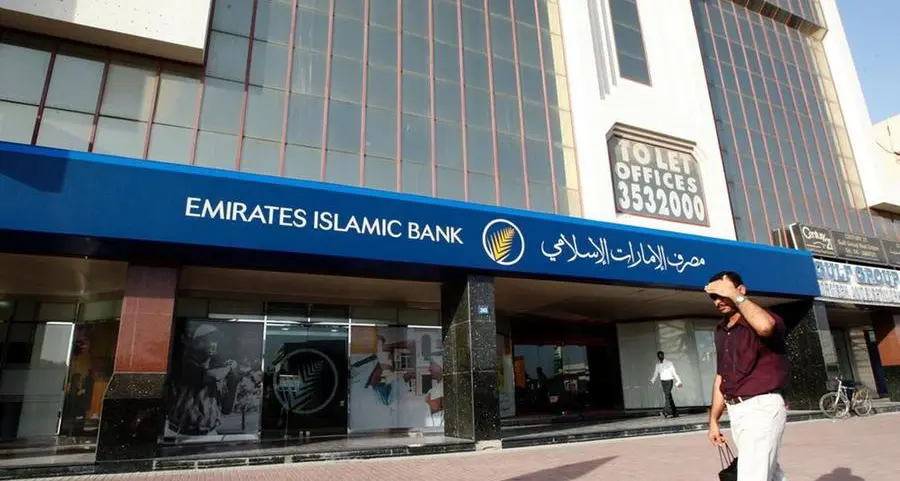Kuwait: Kuwait International Bank (KIB) was recently inspected by the British Standards Institution (BSI) in relation to the ISO 22301:2012 certification requirements for Business Continuity Management (BCM) Systems. The BSI concluded that KIB satisfies all requirements of the ISO standard, thereby re-certifying the Bank’s Business Continuity Management system for three more years until 2022. The surveillance assessment was conducted without any non-conformity and as per the report, the BCM system managed under KIB’s Risk Management, continues to achieve its intended outcomes.
KIB was originally awarded the ISO 22301:2012 certification in 2013, and has been re-certified in 2016 and now in 2019. KIB continues to be the only bank in State of Kuwait to have obtained this ISO certification, as a result of its proactive risk management and its endeavor for continued implementation of a sound and effective business continuity process.
On this occasion, Feroz Noorani, Chief Risk Officer and General Manager of Risk Management at KIB, expressed his delight and gratitude for having the Bank once again awarded the ISO re-certification, saying: “At KIB, we maintain a robust and effective Business Continuity Management system and Crisis Management plan that ensures that our key services and operations can continue effectively and smoothly in the event of any disruption. This reaffirmation of our ISO certification demonstrates our commitment to delivering exceptional banking services to our customers at all times – even during crisis situations.”
Noorani lauded the efforts of KIB Executive Management and all KIB employees who have demonstrated their strong understanding of the Bank's policies and procedures, as well as their role during the auditing process and readiness for any eventuality of business disruption or a crisis. He also noted, the significant role all employees play in improving the Bank's business operations and continuity of services at all times. The ISO report has also commended the Bank’s Executive Management for its effective role in ensuring the successful implementation and readiness of all procedures and processes at all times. Noorani added that “The ISO 22301:2012 re-certification for Business Continuity Management is a testament to KIB's track record in providing excellent customer service while maintaining internationally accepted standards at all times”.
An internationally reputable certification, the ISO 22301:2012 was developed to ensure effective implementation of business continuity within organizations even during crisis scenarios. Accordingly, adhering to ISO 22301:2012 aims at protecting institutions from both severe and minor incidents that might disrupt workflow by providing effective emergency response plans and proper crisis management. BSI is one of the largest certification bodies across the globe and is also the national standards body of the UK. By providing organizations with set business standards, reviewing operations and providing certifications for proper implementation of management system standards, BSI helps them improve performance, reduce their risk and help them become more sustainable.
-Ends-
About KIB
Kuwait International Bank (KIB) is a bank that operates according to the Islamic Shari’ah, based in the State of Kuwait. Incorporated in 1973, and originally known as Kuwait Real Estate Bank, KIB made the transition to its current Islamic operating model in 2007.
KIB is a full service Bank operating through a network of branches spread across the State of Kuwait, and offering a broad range of banking products, services and solutions in accordance with the principles of the Islamic Shari’ah. The Bank’s mission and vision also encompasses a leading social responsibility program that aims at supporting every member of Kuwait’s society by spearheading a multitude of initiatives and activities.
In 2015, KIB embarked on a comprehensive strategic plan, aimed at improving the Bank’s performance indicators, as well as enhancing the quality of its products and services. The strategy focuses on propelling the Bank to the forefront of the Kuwaiti banking sector and setting it on a solid path to becoming the “Islamic Bank of Choice” in the market.
Today, KIB is in the midst of its new strategic transformation: a comprehensive and long-term program which is aimed at transforming the way KIB engages with customers across every touch point and communication channel. This new strategy focuses on offering a next-level customer experience that delivers much more than just “banking” in the traditional sense - but rather establishes KIB as a partner in every aspect of its customers’ lives; a true “bank for life”.
© Press Release 2019Disclaimer: The contents of this press release was provided from an external third party provider. This website is not responsible for, and does not control, such external content. This content is provided on an “as is” and “as available” basis and has not been edited in any way. Neither this website nor our affiliates guarantee the accuracy of or endorse the views or opinions expressed in this press release.
The press release is provided for informational purposes only. The content does not provide tax, legal or investment advice or opinion regarding the suitability, value or profitability of any particular security, portfolio or investment strategy. Neither this website nor our affiliates shall be liable for any errors or inaccuracies in the content, or for any actions taken by you in reliance thereon. You expressly agree that your use of the information within this article is at your sole risk.
To the fullest extent permitted by applicable law, this website, its parent company, its subsidiaries, its affiliates and the respective shareholders, directors, officers, employees, agents, advertisers, content providers and licensors will not be liable (jointly or severally) to you for any direct, indirect, consequential, special, incidental, punitive or exemplary damages, including without limitation, lost profits, lost savings and lost revenues, whether in negligence, tort, contract or any other theory of liability, even if the parties have been advised of the possibility or could have foreseen any such damages.










